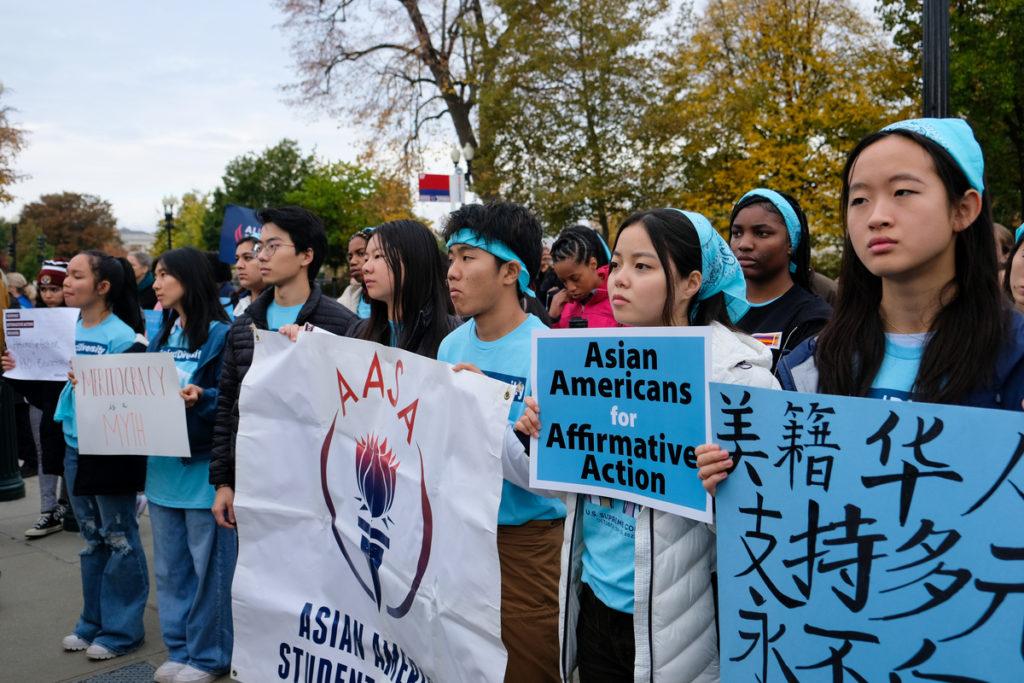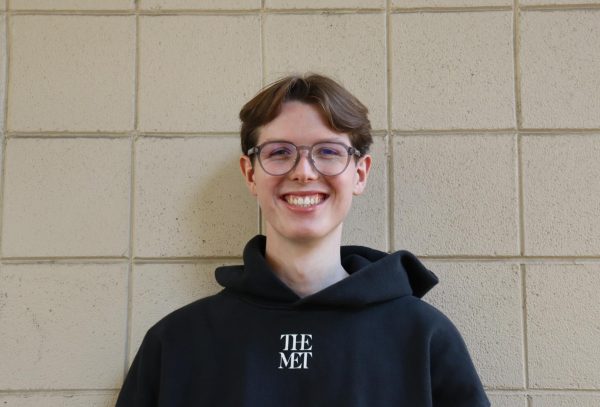A crowd in front of the Supreme Court was covered in bright blue, holding up signs proclaiming “WE WON’T GO BACK” and “Merecemos Estar Aqui.” Forty-one college students, members of a group called Defend Diversity, gathered in front of the Supreme Court to protest in defense of “race-conscious admissions” on Nov. 28. Among them was Class of ‘22 alumna Cici Xu.
Affirmative action is the concept of favoring certain underrepresented groups in college admissions — in the U.S., colleges are allowed to use race as a factor in the admission process, but are not required to.
On the Supreme Court docket this year is the case of SFFA vs. UNC and SFFA vs Harvard. If the conservative majority rules as expected, the landscape of affirmative action will be greatly altered and perhaps eliminated altogether.
Communities like Saratoga, which is made up of mainly wealthy racial minorities, have been used as examples of why race-conscious admissions can be problematic or unfair: Detractors of affirmative action often use the rhetoric of the model minority myth to argue that race-conscious admissions ignore other factors like wealth.
Despite this possible disadvantage, students like Xu, a member of Asian Americans for Affirmative Action at Yale, and Class of ‘21 alumna Kaitlyn Tsai (a student at Harvard) have been vocal about protecting affirmative action policies.
Xu’s college admission experience was different from many other students, especially since she had moved to the U.S. in eighth grade from China and was unfamiliar with the American application system.
Xu stressed that affirmative action has been proven to help minorities and raise their chances of underrepresented groups getting into college.
“I definitely do feel like the minority has benefited more positively from affirmative action, even though the white population has benefited [from legacy affirmative action,]” Xu said. “So when we think about affirmative action we usually just have a very limited misunderstanding about what the concept is.”
Many Asian Americans believe that affirmative action negatively affects them. Xu, however, disagrees.
“I definitely feel like I have benefited from affirmative action,” Xu said. “I feel like I’m really sort of blinded and, because our community is very Asian American dominant, I feel like affirmative action might not be seen as a highlight.”
As a student at Harvard, Tsai feels that affirmative action becomes more necessary in older institutions.
“Harvard was never made for people like me, people who now constitute a large percentage of the population,” Tsai said. “Harvard was made for wealthy white men.”
Tsai also noted the importance of affirmative action is often misrepresented or oversimplified. Tsai argued that affirmative action can be easier to reach an agreement on by highlighting the benefits of affirmative action – namely, increased diversity.
“A lot of the activism that I’ve been a part of here at Harvard has been leveraging the word diversity as a campaign motto,” Tsai said.
She highlighted the fact that diversity is often qualified as an opportunity to provide an educational benefit of diverse experiences to white Americans.
“I think that sort of frames [affirmative action] as a means to people of color to these institutions, in order to educate white people,” Tsai said. “Affirmative action is a compensatory justice measure that is about recognizing the very deep and very broad institutional barriers that people of color, particularly Black people, have faced in accessing educational opportunities.”
Both said they saw the positive impacts of affirmative action more acutely after attending college.
“We need to confront how America was founded out of a very problematic and unjust way,” Xu said. “When we really look at history, we can see how far the BIPOC population has gone to achieve the point that they are right now.”
Most students who are protesting against the possibility of affirmative action being struck down by SCOTUS do not necessarily believe they will change the decision of the court but are protesting to have a voice and be heard by others.
“DC was an extremely empowering experience,” Xu said. “We know perfectly well that our protest at DC will not change the Supreme Court ruling on affirmative action, but we feel proud for taking a stance on what we believe in and fighting on a quotidian basis in our educational institution.”




























